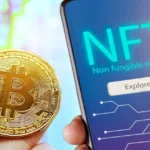- The metaverse offers a potential market worth $8 trillion.
- The first Chinese tech giants to venture into the virtual universe could be Tencent, Alibaba, ByteDance and NetEase.
- There are many doubts about what the metaverse will look like in China, due to the strict control over technology companies and the crackdown on cryptocurrencies.
Despite heavy regulations and expected censorship, China’s top tech companies plan to embark on the metaverse as well, a potential market of about $8 trillion, according to Morgan Stanley.
Chinese tech giants are following in the footsteps of US global competitors such as Meta – Facebook and Microsoft, which have acquired the gaming company, Activision, for this purpose.
However, Chinese tech companies are beginning their foray into the virtual universe cautiously. It is expected that in the future the government will also control the contents of the metaverse and apply a very strict regulatory regime.
Since last year, Beijing has been enduring controls on the activity of its technology companies. The Xi Jinping government has clipped the wings of private companies and has prioritized the development of its state-owned technology companies.
A fundamental step for Chinese companies
The pioneering companies in the metaverse market would be Alibaba, NetEase, Tencent and ByteDance, the owner of TikTok. The Chinese market offers very large growth potential, estimated at around 52 trillion yuan ($8 trillion), according to estimates by the US bank Morgan Stanley.
"Metaverse is the future of social media," Winston Ma, managing partner at CloudTree Ventures, told CNBC. "All China’s tech giants have to embrace it to find new ways to engage the youngest generation of internet users..."
Ma said this step “is critical” at a time of maturing business models for Chinese technology companies, through smartphones and the mobile Internet.
Gaming, virtual reality and social networking applications are expected to be the first to be launched in the virtual world market. Even the market for NFTs (non-fungible tokens), where anything from an avatar to any piece of digital art can be purchased, is likely to catch on very quickly.
What the tech giants think about the metaverse
Representatives of major technology companies are optimistic about the growth potential offered by the metaverse in China. Tencent CEO Pony Ma said in November that this technology sector can support the growth of the gaming industry.
Tencent is the largest global gaming company and has a huge library of games for PC and mobile devices. It is also the owner of WeChat, the messaging service with more than 1 billion users.
Another company that is committed to the metaverse and is preparing to enter it fully is ByteDance. The company has expanded its involvement in the gaming industry and last August bought Pico, the maker of virtual reality headsets.
While Alibaba plans to have its announced augmented reality glasses available this year on its e-commerce platform, which will be used to hold virtual meetings.
For the Winter Olympics in Beijing, Alibaba launched Dong Dong, a “virtual influencer” that provides information about the Olympics and promotes game items.
Meanwhile, mega game company NetEase has been developing metaverse apps at its Hainan base since last year, according to local media reports.
On the Flipside
- Antitrust rules and usage restrictions that apply to Internet platforms in China are likely to apply to spaces dedicated to the metaverse as well. Among them is the use of online games by those under 18 years of age.
For Hanyu Liu, a China market analyst at Daxue Consulting, the government “knows just when and where it needs to stay its hand; close enough so that it can keep a careful watch, but not to the point where it would cause irreversible harm to the industry.”
Why You Should Care
- The truth is that investments and experimentation in the metaverse have already begun in China at the hands of large technology companies. Although it is also very likely that it is a very sui generis metaverse due to censorship and regulations.










